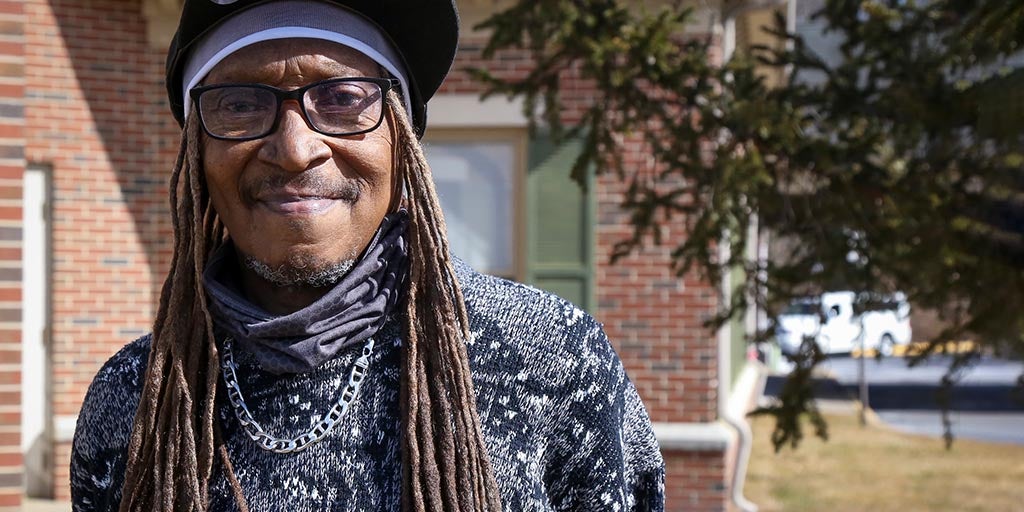
The future is ‘fantastic,’ thanks to treatment – and a lot of love

Sometimes, it seems like life dumps all its sorrows on you at once.
For Roland Wright, tragedy first hit when his mother died in 2003. Not long after, the county placed his baby daughter in foster care. And soon after that, his house caught fire. He barely survived by jumping out a window, but the blaze killed his best friend, who had been living there too.
“It was just so much, right in a row,” Roland said. “I thought, ‘What else wrong can happen?’ and I started drinking.”
Alcohol and drugs numbed his grief for awhile. But addiction soon added to his sorrows. Before, he’d had a good job as a building maintenance supervisor in government offices in Trenton. He lost the job – and his home, friends and family – as he fell deeper into addiction.
“I was living in the streets. I didn’t have anything. I did wrong to so many people that no one wanted me around,” he said.
Twelve years ago, after trying unsuccessfully to recover at other programs, he reached out to Catholic Charities, Diocese of Trenton’s Delaware House in Westampton, where several mental health and addiction treatment programs are based. There, he learned his addiction was rooted in undiagnosed mental illness, and he began recovering in Partial Care, a program that provides a wide range of psychiatric rehabilitation groups and activities for adults with mental illness who need more intensive care to reach their full potential.
“I was sick with mental issues, but I didn’t know that,” he said. “All I thought was that I was alcoholic. But I learned it’s really a mental issue that’s drawing me to the alcohol.”
“I used to think: ‘This is what people do when they have problems, they go get a drink.’ Now I know when I have problems, you go get help. You talk to someone who can help you,” Roland said.
Roland drew strength from the support groups and said most of his friends today are people he met and sees at Catholic Charities. He has been especially inspired by a case manager who long ago struggled with addiction before becoming the mental health professional she is today.
“She’s like a mentor to me,” he said. “I think ‘if she can do it, why can’t I?’ And the things she says inspires me, like if you run into a situation you can handle right then, handle it right then. Don’t wait until tomorrow, because it can get worse.”
But it’s an intangible thing that kept him coming back to Catholic Charities.
“Really, I get love here,” Roland said. “When I was at rock bottom, if love walked up and smacked me in the face, I wouldn’t have known it. It took Delaware House to guide me in the right direction. The staff loves me. And I love them. If it wasn’t for them, I wouldn’t be sitting here now, I know that for a fact.”
He learned how to communicate at Catholic Charities, including advocating for his own needs.
“I used to think: ‘This is what people do when they have problems, they go get a drink.’ Now I know when I have problems, you go get help. You talk to someone who can help you,” Roland said.
At 73, he keeps a well-worn, county-issued identification card in his wallet with a photo taken when he was in the throes of addiction. At the time, he weighed barely 100 pounds. “I keep this to remind me what could happen if I went backwards,” he said.
Since he found sobriety, his children have become his life’s joy.
“They had given up on me. But we’re good now,” Roland said of his two children, now 24 and 21. “They just went to Walmart on Saturday. That’s why I’m broke now. But I don’t mind. I’ll give them all my money.” He added: “I didn’t know life had all these good things in it. But I’m enjoying life now. It’s fantastic.”








